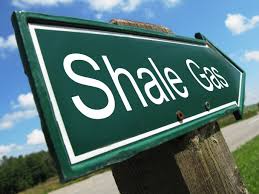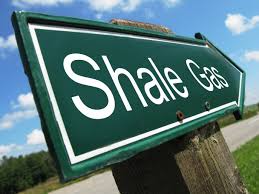
The UK is desperate to join the club of elite countries that produce either natural gas from shale formations or crude oil from tight formations at an international level. Only four countries – US, Canada, Argentina and China are members of this club.
And the UK government has pledged its support to explorers of shale gas.
UK is desperate as experts have already pointed that the best days of its North Sea oil and gas assets appear to be behind it.
There is an estimated 1,329 trillion cubic feet of gas in UK shale formations as was announced by the British Geological Survey in 2013. The UK policymakers acknowledge UK shale will not be quite the game changer it has been stateside even though the BGS did not say how much of the said volume was technically recoverable.
Chancellor of the Exchequer George Osborne dropped yet another morsel for UK shale enthusiasts in his Autumn Statement, or budgetary update, to the British Parliament on 25 November.
“We are supporting the creation of the shale gas industry by ensuring that communities benefit from a Shale Wealth Fund (SWF), which could be worth of up to £1 billion ($1.6 billion),” he announced.
People and local councils in zones impacted by shale exploration is anticipated to be the target of the allocations with the intention of winning them over. This announcement comes after the British Department of Energy and Climate Change had announced that the government’s energy policy will see natural gas play a “central role in the UK’s future power generation plans”.
Consultations for closing down of the country’s coal-fired power stations by 2025 in tandem with the introduction of “more gas” into the energy mix would be opened soon as was announced by Energy Secretary Amber Rudd on 18 November.
A year ago, the UK Treasury had announced incentives to onshore operations where a portion of profit equal to 75% of an exploration company’s qualifying onshore capital expenditure would be exempt from supplementary tax charge.
As is usually the case with oil and gas companies operating on the UK Continental Shelf, the portion of the profit thus obtained will then be subject to tax at 30%, while the remaining profit will be subject to a marginal tax rate of 62%.
Here are reports that the tax receipts from the British sector of the North Sea are in decline, and are likely to continue falling. Osborne had cut the UK Petroleum Revenue Tax from 50% to 35%, largely aimed at supporting investment in maturing offshore prospects in line with a radical overhaul, before the British General Election on 7 May that saw his Conservative Party return to power with a majority.
In addition, the country's supplementary rate of taxation was cut further down to 20% which had already been lowered from 32% to 30% in December 2014. Altogether, the UK’s total tax levy has fallen from 60% to 50%.
The oil and gas industry, participating companies and lobby group Oil and Gas UK welcomed the creation of the SWF.
“The announcement to create the SWF to support the creation of a shale gas industry should accelerate investment. One of the biggest challenges the sector faces right now is funding projects as a result of drawn out planning applications and the low current gas price. This long planning is making investors reluctant to hand over cash as under the current system projects are uneconomical,” said Chris Lewis, partner in EY’s energy team.
(Source:www.forbes.com)
And the UK government has pledged its support to explorers of shale gas.
UK is desperate as experts have already pointed that the best days of its North Sea oil and gas assets appear to be behind it.
There is an estimated 1,329 trillion cubic feet of gas in UK shale formations as was announced by the British Geological Survey in 2013. The UK policymakers acknowledge UK shale will not be quite the game changer it has been stateside even though the BGS did not say how much of the said volume was technically recoverable.
Chancellor of the Exchequer George Osborne dropped yet another morsel for UK shale enthusiasts in his Autumn Statement, or budgetary update, to the British Parliament on 25 November.
“We are supporting the creation of the shale gas industry by ensuring that communities benefit from a Shale Wealth Fund (SWF), which could be worth of up to £1 billion ($1.6 billion),” he announced.
People and local councils in zones impacted by shale exploration is anticipated to be the target of the allocations with the intention of winning them over. This announcement comes after the British Department of Energy and Climate Change had announced that the government’s energy policy will see natural gas play a “central role in the UK’s future power generation plans”.
Consultations for closing down of the country’s coal-fired power stations by 2025 in tandem with the introduction of “more gas” into the energy mix would be opened soon as was announced by Energy Secretary Amber Rudd on 18 November.
A year ago, the UK Treasury had announced incentives to onshore operations where a portion of profit equal to 75% of an exploration company’s qualifying onshore capital expenditure would be exempt from supplementary tax charge.
As is usually the case with oil and gas companies operating on the UK Continental Shelf, the portion of the profit thus obtained will then be subject to tax at 30%, while the remaining profit will be subject to a marginal tax rate of 62%.
Here are reports that the tax receipts from the British sector of the North Sea are in decline, and are likely to continue falling. Osborne had cut the UK Petroleum Revenue Tax from 50% to 35%, largely aimed at supporting investment in maturing offshore prospects in line with a radical overhaul, before the British General Election on 7 May that saw his Conservative Party return to power with a majority.
In addition, the country's supplementary rate of taxation was cut further down to 20% which had already been lowered from 32% to 30% in December 2014. Altogether, the UK’s total tax levy has fallen from 60% to 50%.
The oil and gas industry, participating companies and lobby group Oil and Gas UK welcomed the creation of the SWF.
“The announcement to create the SWF to support the creation of a shale gas industry should accelerate investment. One of the biggest challenges the sector faces right now is funding projects as a result of drawn out planning applications and the low current gas price. This long planning is making investors reluctant to hand over cash as under the current system projects are uneconomical,” said Chris Lewis, partner in EY’s energy team.
(Source:www.forbes.com)





